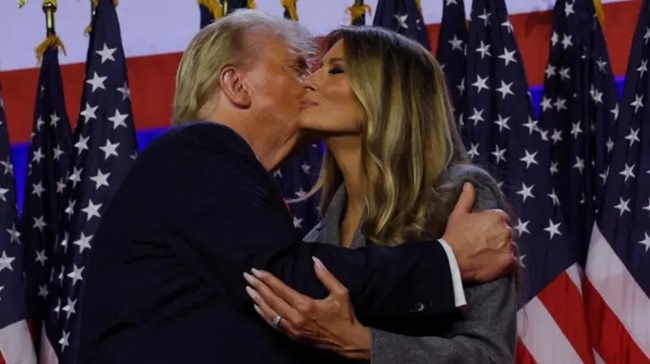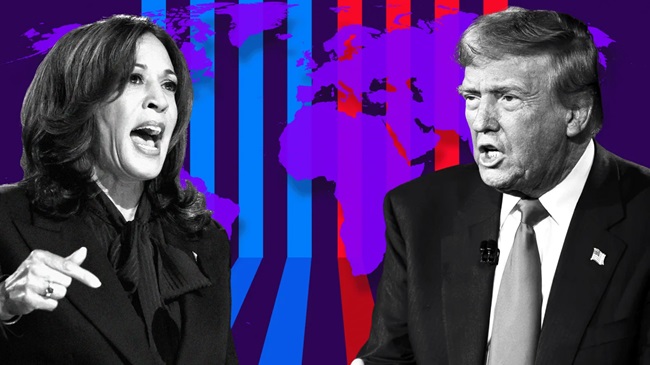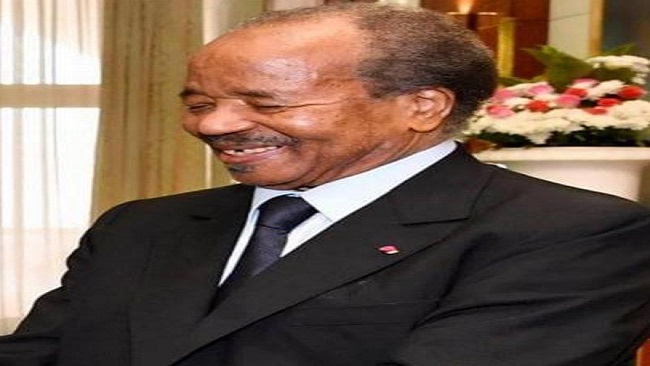6, November 2024
US: Donald Trump declares victory as he addresses jubilant supporters 0
Donald Trump declares victory in the US election as he addresses jubilant supporters in Florida
“America has given us an unprecedented and powerful mandate,” he says to cheering crowds
The Republican has picked up the battleground states of Pennsylvania, North Carolina and Georgia, leaving Kamala Harris with only a narrow path to victory
Just before Trump began speaking, Fox News projected that he had won the election; other US TV networks are yet to do so
A return to the White House would be an extraordinary comeback for Trump after he lost to Joe Biden in 2020
Harris says she won’t speak today, as dejected supporters left her watch party earlier
Meanwhile, Republicans are projected to have taken back the Senate.
Source: BBC

























13, November 2024
US: Trump meets Biden at White House to begin transition of power 0
Biden welcomed Trump to the White House on Wednesday for an Oval Office visit that is a traditional part of the peaceful handoff of power – a ritual Trump himself declined to participate in four years ago.
“Donald, congratulations,” Biden said, greeting Trump with a handshake and adding that he looked “forward to a smooth transition.”
“Thank you very much,” Trump said. “Politics is tough. And it’s, in many cases, not a very nice world. But it is a nice world today and I appreciate it very much.”
The president-elect touched down in Washington on Wednesday, arriving near the Capitol with billionaire Elon Musk in tow, for a meeting with House Republicans and then an Oval Office session with Democratic President Joe Biden as Trump prepares for a potentially unified Republican government and sweep of power.
Back in Washington for the first time since his election victory, Trump told the GOP lawmakers, “It’s nice to win.”
It’s a stunning return to the US seat of government for the former president, who departed nearly four years ago a diminished, politically defeated leader after the Jan. 6, 2021 attack on the Capitol but is preparing to come back to power with what he and his GOP allies see as a mandate for governance.
The White House meeting between a president and president-elect is one Trump himself declined to participate in four years ago after he lost to Biden.
Trump disputed his 2020 election loss to Biden, and he has continued to lie about widespread voter fraud that did not occur. He didn’t invite Biden, then the president-elect, to the White House and he left Washington without attending Biden’s inauguration. It was the first time that had happened since Andrew Johnson skipped Ulysses S. Grant’s swearing-in 155 years ago.
Biden insists that he’ll do everything he can to make the transition to the next Trump administration go smoothly, despite decrying Trump as a threat to democracy and the nation’s core values throughout the election campaign.
In the wake of the election, the president has abandoned his dire warnings about Trump, saying in a speech last week, “The American experiment endures. We’re going to be okay.”
White House press secretary Karine Jean-Pierre said Biden is committed to “making sure that this transition is effective, efficient and he’s doing that because it is the norm, yes, but also the right thing to do for the American people”.
“We want this to go well,” Jean-Pierre added. “We want this to be a process that gets the job done.”
Traditionally, as the outgoing and incoming presidents meet in the West Wing, the first lady hosts her successor upstairs in the residence, but her office said Melania Trump wasn’t attending, saying in a statement that “her husband’s return to the Oval Office to commence the transition process is encouraging, and she wishes him great success”.
Source: AP